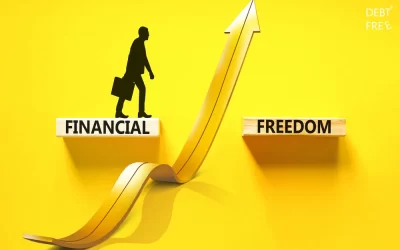

Unlocking Your Path to Prosperity: A Lighthearted Guide to Overcoming Financial Freedom Challenges
Are you ready to ditch those pesky money habits holding you back? Dive into this fun and insightful guide to reclaim your financial future. Here, we’ll explore the top ten traps people fall into and how to leap over them with style on your path to financial health.
Unlocking your path to prosperity is not just a dream; it’s a journey that begins with a solid financial plan. Imagine using a calculator to see how each small step you take can accumulate into significant wealth over time on your journey to financial independence. With the right financial advice from a financial advisor or financial planner, you can eliminate unnecessary expenses and transform your spending habits. Achieving financial freedom means carefully assessing your insurance premiums, maximizing your employer’s retirement plan, and finding innovative FinTech tools to help you stay on track.
It’s time to convert your ambitions into action! Whether you want to earn $1000 a day or just find fast ways to achieve financial independence, you have the power to reach your goals. Start your journey with the Money Max Account by United Financial Freedom, a legitimate program since 2004, designed to help you achieve financial freedom. Remember, financial stability and health are attainable with expert tips and a commitment to your long-term financial success. Live the life you’ve always dreamed of by becoming financially independent!
1. The Paycheck Puzzle: Prioritize Yourself First
Let’s start with the age-old mistake of putting everyone else ahead of yourself when it comes to finances. You know the routine: rent, bills, and that subscription service you forgot to cancel. But what if you flipped the script? Take a cue from financial experts and treat your savings like a non-negotiable bill on your path to financial freedom. Aim to save at least 10% of your paycheck right off the bat. Think of it as paying your future self—trust me, they’ll be grateful!
2. The Debt Comfort Zone: Time to Break Free
Ah, debt—the unwelcome guest at your financial party. It’s so easy to fall into the trap of using credit for everything, from gifts to impulse buys. Here’s a simple rule: if you can’t buy it with cash right now, resist the urge to swipe that card on your path to financial freedom. Remember, those credit card companies thrive on your missteps. Don’t give them the satisfaction of dragging you down!
3. The Income and Expense Equation: Know Your Numbers
Ever feel lost in a financial maze? That’s what happens when you’re not aware of your income and expenses. Get acquainted with your financial landscape and map out your path to financial independence! Track where your money goes each month. Be wary of lifestyle inflation; as your earnings grow, so can your spending. Break this cycle by sticking to a budget that reflects your true priorities.
4. The Impulse Buy Trap: Pause Before You Purchase
We’ve all been there—seeing something shiny and feeling compelled to buy it right away. Before you hit “checkout,” take a step back and consider if this purchase aligns with your journey to financial freedom. Implement a 24-hour rule: wait a day before making non-essential purchases. You might find that the urge fades, and your wallet will thank you.
5. The Savings Saboteur: Invest in Your Future
Lastly, don’t let the savings saboteur steal your dreams on your path to financial freedom. It’s easy to think you’ll save later, but the best time to start is now. Open a savings account or explore investment options, even if it’s just a small amount. The earlier you start, the more your money can grow. Treat it as a commitment to your future self.
6. The Budgeting Blind Spot: Make a Plan
Creating a budget may sound tedious, but it’s your financial roadmap. Sit down and map out your monthly income and expenses. Categorize your spending to see where you can cut back. A clear plan will empower you to make informed choices, helping you stay on track to reach your financial goals.
7. The Emergency Fund Faux Pas: Prepare for the Unexpected
Life is unpredictable, and that’s why an emergency fund is essential. Aim to save three to six months’ worth of expenses in a separate account for those rainy days. This cushion will prevent you from falling back into debt when unexpected costs arise, like medical bills or car repairs.
8. The Lifestyle Creep Conundrum: Keep It Real
As your income increases, it’s tempting to upgrade your lifestyle. But beware of lifestyle creep! Just because you can afford more doesn’t mean you should spend more on your path to financial independence. Focus on maintaining a balanced lifestyle that prioritizes savings and investment over fleeting luxuries.
9. The Financial Literacy Gap: Educate Yourself
Knowledge is power, especially when it comes to finances. Take the time to educate yourself about personal finance topics—books, podcasts, and online courses can be invaluable resources for achieving financial health. The more you know, the better equipped you’ll be to make wise financial decisions.
10. The Accountability Ally: Find Your Support System
It’s easy to push retirement savings to the back burner, especially when it feels far away. However, the earlier you start saving for retirement, the more you’ll benefit from compound interest. Make it a priority to contribute to your retirement accounts, even if it’s a small amount at first.
Conclusion: Awareness is Key to Financial Freedom
Recognizing these unconscious habits is the first step toward reclaiming your financial freedom. By being mindful of your spending, saving, and investing behaviors, you can build a solid foundation for a secure financial future. Take charge of your financial journey today, and watch how small changes can lead to significant improvements!
Learn how To turn your debt into wealth with The Money Max Account, consider how a loan can impact your financial health.
Cancel years of mortgage payments, save tens of thousands of dollars in interest, and turn your debt into wealth through careful elimination strategies. United Financial Freedom’s Money Max Account is your roadmap to a debt-free life.









